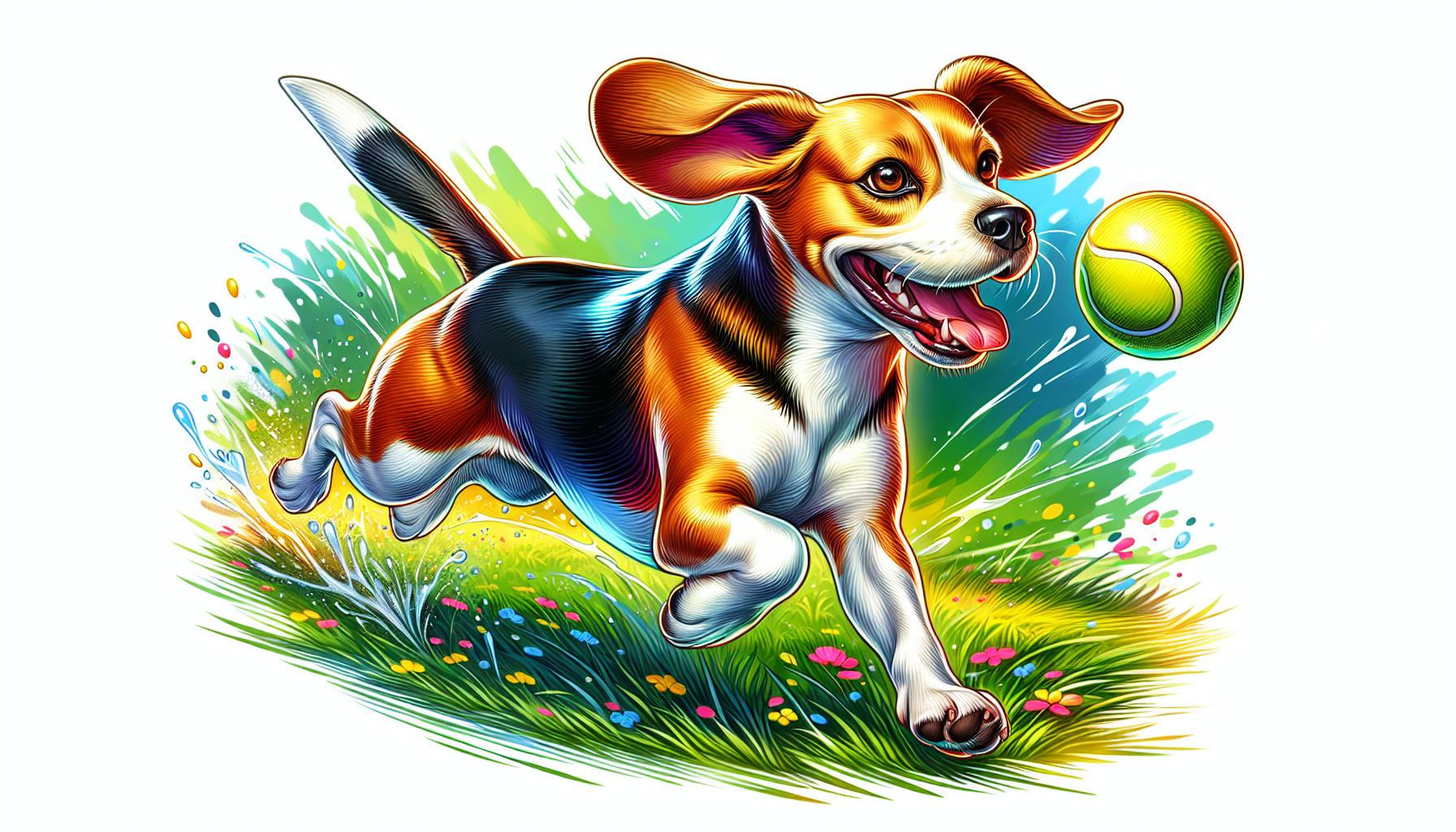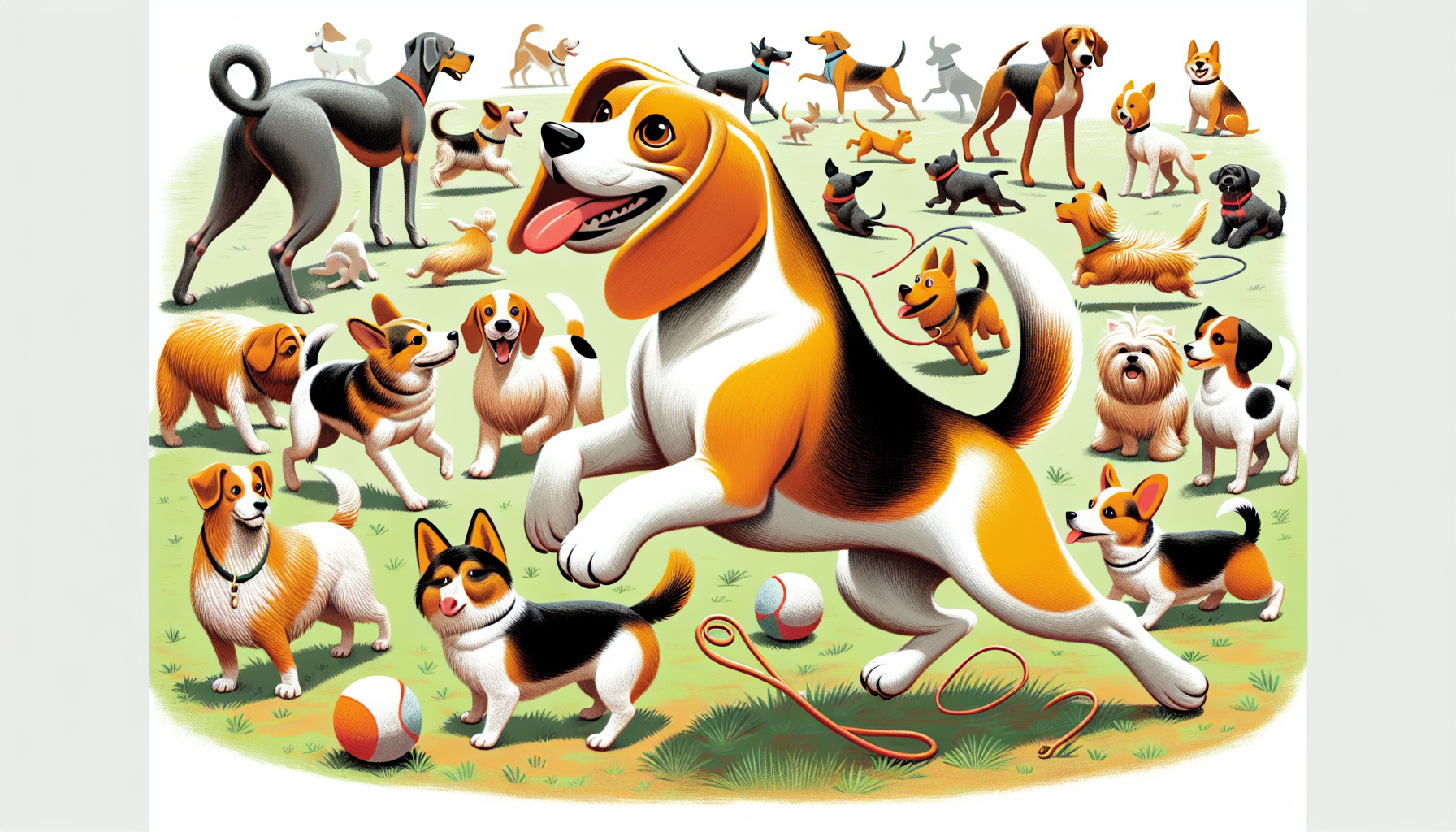Are you struggling with beagle behavioral issues like excessive barking or digging? We became overwhelmed when our blue tick beagle, Lilly, began to display these challenging behaviors. By implementing a few crucial strategies, we not only addressed Lilly's actions but also strengthened our bond with her. In the following guide, you'll discover how you can turn your beagle's troublesome behaviors into a success story, enhancing your relationship along the way.
Key Takeaways
- Beagles require consistent training tailored to their high energy, strong sense of smell, and intelligent, curious nature to manage behaviors like excessive barking, digging, and chasing.
- Addressing beagle behavioral issues includes using high-value treats, regular exercise, socialization, and techniques like positive reinforcement, patience, and consistency in routine and commands.
- Brain Training For Dogs is a recommended online dog training program that uses problem-solving games to engage beagles’ minds, with a structure from ‘preschool’ to ‘Einstein’ level to progressively develop their intelligence.
Find out how to train your beagle to be the well-behaved pup you desire – Read Free Report
Understanding Beagle Behavior
Beagles are known for their friendly demeanor and exceptional sense of smell, making them delightful companions. These loyal and affectionate pets thrive on family interaction but they aren't exactly couch potatoes. Due to their high energy and innate curiosity, beagles require consistent training from an early age. If you're wondering why your new beagle puppy is more energetic than your first, it's important to recognize that each beagle's temperament can vary.
Although their strong will and independent nature can make training a challenge, guiding a beagle can be a deeply rewarding experience.
Strong Sense of Smell
Beagles are renowned scent hounds, and their acute sense of smell can sometimes lead them astray during training sessions. Have you noticed your beagle ignoring commands to follow a fascinating scent trail? This selective listening is a natural instinct for them. However, you can leverage this trait to your advantage.
Incorporating strong-smelling treats into your training routine can capture your beagle's attention more effectively. This strategy ensures better focus and more successful training outcomes by aligning with their keen olfactory abilities.
High Energy Levels

Image created using AI
Imagine having the energy of two beagles combined! Beagles require over an hour of outdoor activity per day to manage their energy levels. Regular moderate exercise with activities like fetch and controlled running can prevent unwanted behaviors like excessive barking, digging and running away from boredom..
A tired beagle, especially a female beagle, is a well-behaved beagle, so make sure your furry friend gets plenty of exercise with their favorite dog toy.
Intelligence and Curiosity
Don’t let their playful demeanor fool you; beagles are intelligent dogs. Their curious nature requires both physical and mental stimulation.
Brain Training For Dogs is an excellent program that offers a variety of games and puzzles to challenge their minds. By engaging in these interactive activities, your beagle can learn to reduce excessive barking and display better behavior.
Social Nature
Beagles are social dogs with a pack dog mentality that leads to a struggle with being left alone. This can result in separation anxiety, causing destructive behavior or excessive vocalizations when isolated.
Recognizing the signs of separation anxiety and addressing this issue is crucial for managing your beagle’s behavior and ensuring their happiness.
Common Beagle Behavioral Issues

Image created using AI
If you're a beagle owner, you're likely familiar with some behaviors that can pose challenges. Here's a quick rundown of the most common issues and why understanding them is vital:
- Excessive Barking
- Digging
- Chasing Instincts
- Food Stealing
Recognizing and understanding the root causes of these behaviors is crucial. It's the first step towards effectively managing them and fostering a peaceful environment for both you and your beagle.
Excessive Barking
Beagles are known for their vocal nature, often expressing themselves through barking or howling. As one of the most vocal dogs, their lively barks and melodious howls are characteristic of this dog breed. This can be charming until it turns into excessive barking. Their heightened senses and hunting background alert them to various stimuli, causing them to bark more than other breeds.
Training a beagle not to bark excessively requires patience and may include teaching a ‘quiet’ command or using no-shock bark collars.
Digging
Do you have a Beagle that loves to dig? Given their nature as scent hounds, Beagles often dig driven by their instinct to hunt burrowing animals or insects. To manage this behavior, consider creating a designated digging area in your backyard. This allows your Beagle to satisfy its digging urges in an appropriate spot. Additionally, make your yard less appealing to the types of burrowing animals or insects that attract your Beagle’s attention, potentially reducing the incentive to dig.
Chasing Instincts
Ever found your beagle, one of the popular hunting dogs, chasing after something with no heed to their surroundings? This is their chasing instinct at work, a behavior stemming from their hunting heritage. Leash training and teaching a reliable recall command are essential in managing a beagle’s chasing behavior.
This provides control and focuses the beagle during training sessions to prevent distraction.
Food Stealing
If your beagle has developed a habit of stealing food and exhibiting possessive behavior around it, you're not alone. This common issue can be addressed by integrating positive reinforcement into their feeding routine. Try approaching their food bowl with extra tasty treats in hand. This method helps your beagle associate your presence with positive and rewarding experiences, rather than a threat to their resources, reducing their need to guard or steal food.
Brain Training For Dogs: An Effective Solution
When it comes to persistent behavioral issues in dogs, especially beagles, finding effective training solutions is essential. Brain Training For Dogs, an online program led by the CPDT-KA certified dog trainer Adrienne Farricelli, is highly recommended for its comprehensive approach to addressing these challenges.
Program Overview
Brain Training For Dogs utilizes a science-based methodology that includes audio/visual markers such as clickers, aiming to reshape dog behavior effectively. The program is structured to be user-friendly, providing detailed written instructions and video demonstrations that facilitate at-home training. Its accessibility helps dog owners implement professional training techniques themselves.
Tapping into Natural Intelligence
The program is uniquely designed like a school system, ranging from ‘preschool‘ to ‘Einstein‘ levels, which progressively taps into and develops a dog’s natural intelligence. By engaging dogs through a series of problem-solving games, the training not only keeps them mentally stimulated but also aligns with their innate cognitive abilities. This approach encourages dogs to actively engage in their learning process, promoting cognitive development in a structured manner.
Affordable and Easy-to-Follow
Offered at an accessible price point of $67, Brain Training For Dogs represents significant value. The program operates on a one-time payment model, which grants lifetime access to all its resources. Additionally, members gain access to a dedicated area for ongoing support and advice, enhancing the training experience. The inclusion of a 60-day money-back guarantee provides peace of mind, ensuring that customers can invest in the program risk-free.
This program not only educates but also builds a stronger relationship between the dog and the owner, ensuring long-term behavioral success.
Expert Tips for Managing Beagle Behavioral Issues
While the Brain Training For Dogs program offers comprehensive tools for behavior management, integrating fundamental training principles is also crucial for beagle owners. Success in living harmoniously with a beagle hinges on understanding their unique behaviors and addressing them with a blend of patience, training, and affection. Diving deep into their characteristics can significantly enhance their overall well-being.
Professional Guidance
If behavioral challenges persist, consulting a professional dog trainer is advisable. Experts can provide tailored guidance and strategies that are effective for your beagle's specific needs.
Positive Reinforcement
Beagles respond exceptionally well to reward-based training. Employing treats as rewards during training sessions can foster a positive link between obedience and rewards for your beagle. Additionally, acknowledging their good behavior with praise, affection, or treats after they perform a desired action helps reinforce these behaviors and clarifies what is expected of them.
Consistency
Maintaining consistency is essential when training a beagle. Establishing a predictable daily schedule with set times for walks, meals, and training helps beagles understand what is expected of them and aids in learning appropriate behaviors. It’s also beneficial to ensure all family members are consistent in using the same commands and maintaining uniform expectations during training.
Patience
Given their high intelligence and natural curiosity, beagles might sometimes appear selectively attentive or test boundaries. This breed's cleverness, combined with occasional stubbornness, means that patience is a vital trait for owners. Effective training often requires time, and behavior changes can be gradual. Approaching training sessions with a calm, persistent demeanor will yield the best results over time.
Adopting these expert tips into your routine can make training more enjoyable and effective, paving the way for a more peaceful and fulfilling relationship with your beagle.
Socializing Your Beagle

Image created using AI
Socializing your beagle is another critical aspect of their upbringing. Exposing beagle puppies to various environments such as parks and cafes, familiarizes them with different sights and sounds, aiding in their social development.
Daily walks serve as a practical approach for beagles to encounter diverse environments, such as a dog park, and socialize with other animals and people.
Early Socialization
It's important to start socializing beagle puppies early, ideally between 3-4 weeks old, continuing exposure to new experiences until they are about 12-16 weeks old. Key elements of effective socialization include:
- Introducing them to a variety of dogs, people, and other animals to build their confidence and adaptability.
- Exposing them to diverse environments and situations to reduce fear and anxiety in new settings.
- Familiarizing them with common experiences such as car rides and crates to ease anxiety associated with these situations.
This early exposure is essential for their emotional development and helps prevent behavioral issues later in life.
Introducing New Pets
When bringing a new pet into a home with a beagle, it's important to proceed cautiously. Start by allowing them to interact through a barrier, like a baby gate, to ensure safety. Monitor these interactions closely, rewarding positive behavior with treats to reinforce good conduct. Be aware of the beagle’s natural hunting instincts, which could manifest as chasing, especially around smaller pets.
Family Bonding
The bond between a beagle and its family is special. Engaging in play with beagles is an effective way for family members to bond with their pet.
Beagles, prone to exhibit protective behavior towards children, can serve to establish trust between the dog and family members.
Summary
Raising a beagle is rewarding but challenging, requiring patience, consistent training, and a deep understanding of their behaviors. Leveraging tools like the Brain Training For Dogs program and following expert socialization tips can greatly aid in navigating the complexities of beagle ownership. With the right strategies, you can ensure a fulfilling relationship with your energetic and affectionate beagle.
Frequently Asked Questions
Why are Beagles so misbehaved?
Beagles are often misbehaved because they thrive on attention and may experience separation anxiety when left alone, leading to destructive behavior such as chewing and scratching. It's important to address their need for attention and implement strategies to reduce separation anxiety.
Why does my beagle bark so much?
Beagles bark a lot due to their heightened senses and hunting background, which make them alert to various stimuli. Training them to bark less requires patience and teaching a “quiet” command.
How can I manage my beagle's digging behavior?
To manage your beagle's digging behavior, provide a designated digging area to satisfy their natural instinct to dig and discourage digging in unwanted areas. This can help channel their behavior in a positive direction.
How can I stop my beagle from chasing after everything?
To stop your beagle from chasing after everything, focus on leash training and teaching a reliable recall command. This will help manage their natural instinct to chase scents.
My beagle steals food. How can I manage this behavior?
To manage your beagle's food stealing behavior, try approaching their food bowl with extra tasty treats to create a positive association with your presence. This can help reduce their possessive behavior.
Learn how to train your beagle to be the well-behaved dog you desire –> Access our Free Report
Shop for beagle-themed products and gifts that beagle enthusiasts will love.

